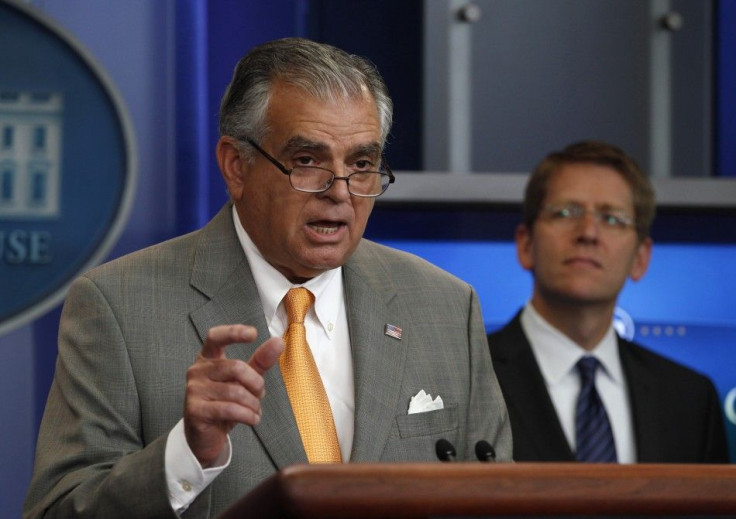FAA Shutdown Update: Temporary Compromise Reached

Late Thursday afternoon, the House and Senate reached a deal to temporarily end the Federal Aviation Administration (FAA) negotiation stalemate by passing a short-term extension that will allow over 70,000 transportation and construction workers to return to their jobs and prevent the government from losing out on over $1 billion in airline taxes.
The agreement would extend the FAA's operating authority through mid-September when Congress resumes. Although congress is officially on vacation, the bill could be approved if leaders from both parties agree to adopt it by "unanimous consent." Thousands of workers could be back to work and construction projects resumed as early as Monday if President Obama signs the bill over the weekend.
"I'm pleased that leaders in Congress are working together to break the impasse involving the FAA so that tens of thousands of construction workers and others can go back to work," Obama said in a statement praising the temporary relief for FAA employees across the country.
But, the bill does not come without conditions. The ruling includes stipulations that would eliminate $16.5 million in air service subsidies to 13 rural communities.
The Essential Air Service Program (EAS) subsidizes flights at about 150 rural airports across the country at a cost of roughly $200 million. Republicans are seeking to eliminate this program, and the price of reaching the temporary bi-partisan agreement was the de-funding of some of these airports.
The EAS program gives money to smaller airports in America in order to entice airlines to fly into them and keep regular air traffic in and out of these communities. Without the subsidies, it is likely that these airports will experience deregulation and a huge dip in commercial air traffic. During the temporary agreement, 13 airports will lose funding, but Transportation Secretary Ray LaHood can use his authority to grant waivers to airports affected by the cuts at his discretion.
Communities targeted for the proposed air service subsidy cuts are Morgantown, W.Va.; Athens, Ga.; Glendive, Mont.; Alamogordo, N.M.; Ely, Nev.; Jamestown, N.Y.; Bradford, Pa.; Hagerstown, Md.; Jonesboro, Ark.; Johnstown, Pa.; Franklin/Oil City, Pa.; Lancaster, Pa.; and Jackson, Tenn.
The EAS program was not the main sticking point for Republicans and Democrats voting on the FAA bill. Both the House and Senate passed long-term funding bills for the FAA earlier this year, but the bill has been left unfinished due to labor union negotiations.
Republicans are seeking to overturn a ruling passed in 2010 by the National Mediation Board that allows airline and railroad employees to form a union by a majority vote of those who voted, not the majority of all union members. Before this ruling was passed, workers who did not vote were counted as "no" votes, making it harder to form unions. The most recent rule makes it easier for airlines to form unions which Republicans fear will lead to over-protection and hyper-job security. They were still seeking to overturn this ruling when Congress was recessed this July.
This extension is only a Band-Aid to temporarily relieve the ongoing stalemate that will likely resume when Congress returns in September to decide on a permanent ruling.
"This agreement does not resolve the important differences that still remain, but I believe we should keep Americans working while Congress settles its differences, and this agreement will do exactly that," said Senate Majority Leader Harry M. Reid.
Unless House and Senate negotiators are able to reach a final agreement soon after returning to Capitol Hill, it is likely that the FAA will once again face suspension and halted operations.
© Copyright IBTimes 2025. All rights reserved.




















